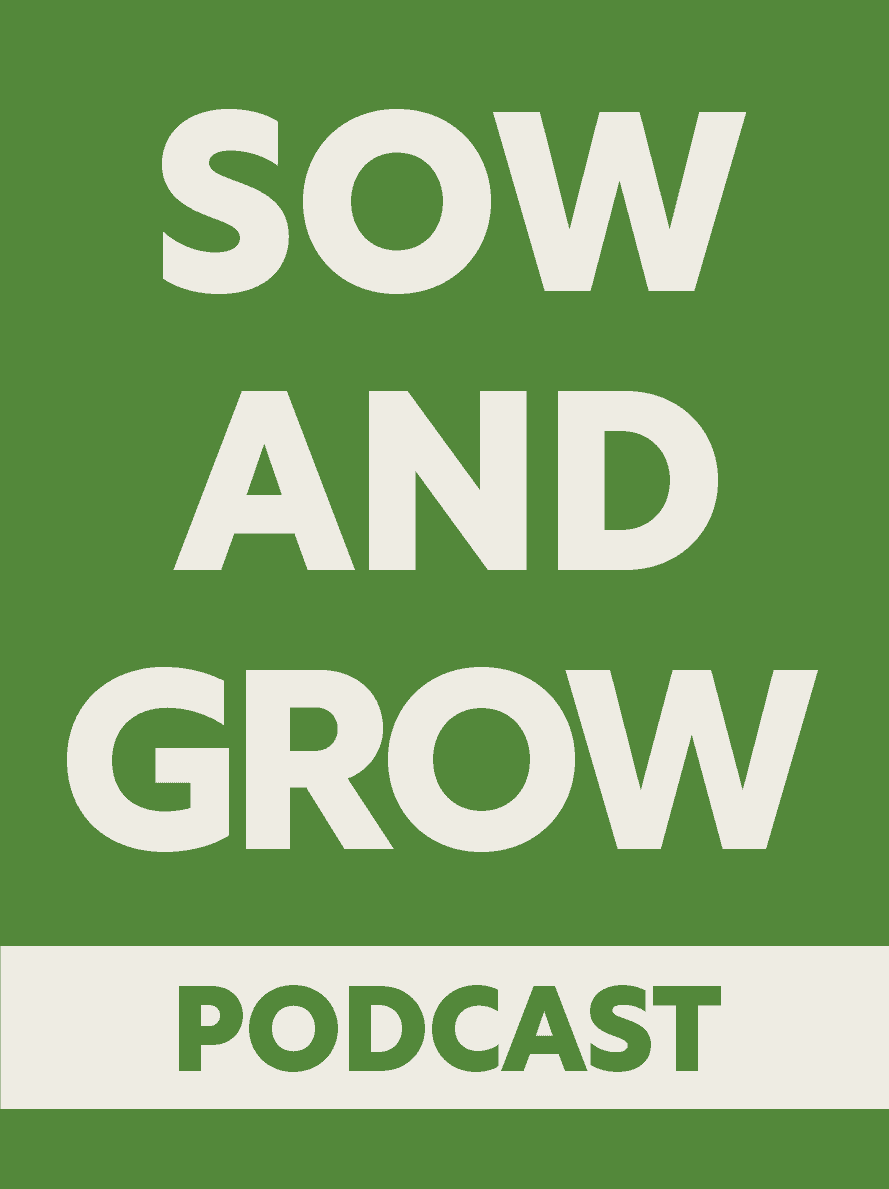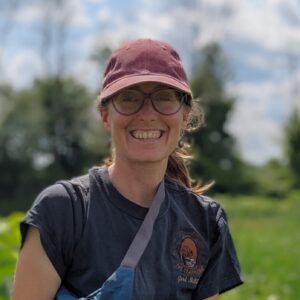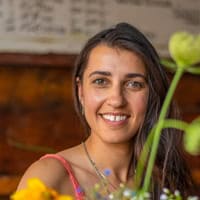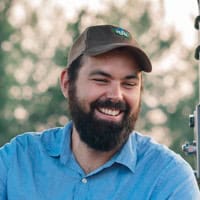Who Will Feed Us
Series 1
This series explores the forces that shape Canadian agriculture and the solutions needed to build a more just and ecologically sustainable food system. Throughout a nine episode arc, a variety of guests, including activists, policy advocates, and of course other farmers, farmworkers, seedkeepers and food providers, will share individual experiences as they help hosts, and listeners, understand some of the underpinnings of what we believe is a food system that serves no one a healthy meal.
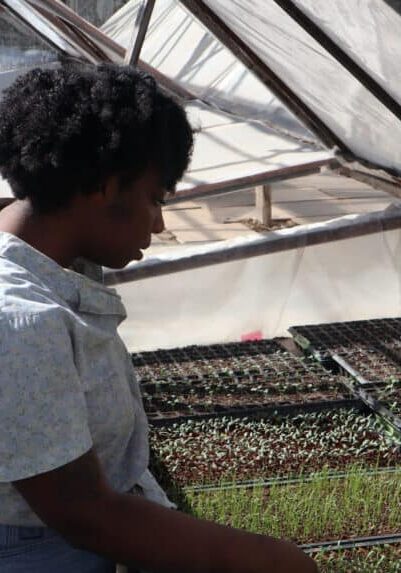
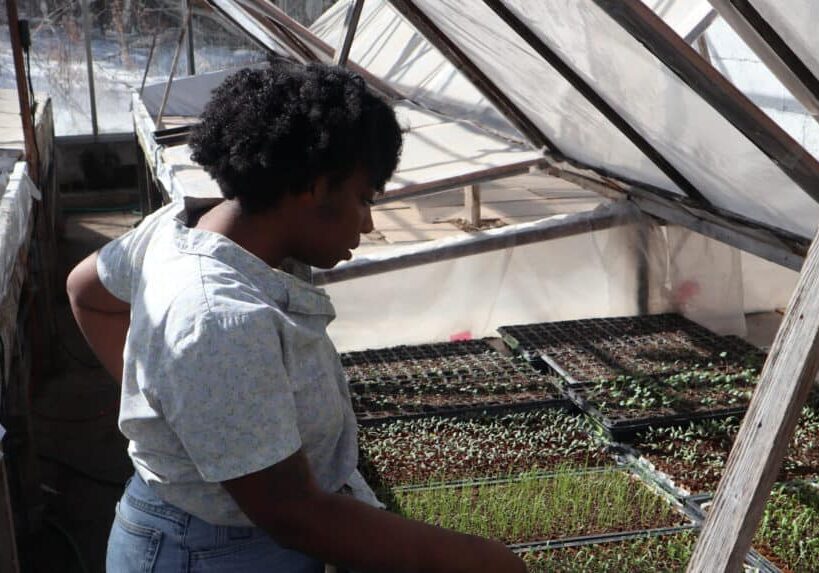
Episodes
Production Team
Aliyah Fraser
Co-Host/Producer
Aliyah is a Kitchener-based farmer who owns and operates a quarter acre market garden called Lucky Bug Farm on rented land in Waterloo Region where she grows a variety of produce for a small CSA program. The farm operates within the Haldimand Tract in Kitchener, Ontario and is on the traditional territory of the Mississauga, Anishnabeg, Attiwonderonk (neutral) and Haudenoshaunee peoples. She imagines a food system where more people have access to ecologically grown food, where there is less waste and where there’s a better understanding of the labour it takes to get food from the farm to the table. Aliyah also has an undergraduate degree in Environmental Studies in Urban planning from the University of Waterloo. She believes that food and housing are human rights. She lives in Kitchener, Ontario with her partner Thomas and cat Frankie.
luckybugfarm.com | @luckybugfarm
Ayla Fenton
Host
Ayla is a first-generation farmer and community organizer. She graduated from Queen’s University in 2011 with a B. Sc (Honours) in Biology, and since 2013 has been working on local organic farms, learning regenerative production methods for vegetables, livestock, cereal grains and dairy. Since. Ayla has been a board member of the National Farmers Union, and is a former Youth President. She has been involved with organizing young farmers and farmworkers nationally and internationally, advocating for the transition to agroecology, food sovereignty and climate justice. Ayla also represents the NFU in the global peasant movement La Via Campesina.
Kate Garvie
Editor/Producer
Kate founded Heartbeet Farm in 2018 after spending four years working on organic vegetable farms across Ontario. She first learned about ecological agriculture at Trent University during her undergraduate degree. After completing a Master’s of Environmental Studies, Kate returned to farming with a better understanding of the connections between food sovereignty, indigenous solidarity and climate justice. She is passionate about building a local food system that is environmentally sound and socially just.
Madeline (Maddie) Marmor
Co-Host/Producer
Maddie is a landless farmer born in downtown Toronto. She has been farming for the past 8 years on farms throughout Ontario and has grown food on the current and traditional lands of the Houdensaunee, Anishinabewaki, Attiwonderonk, Mississauga, Odawa, Wendake-Nionwentsïo, Petun, Saugeene – Ojibiway nations. Over the years she has come to recognize the privilege and political significance of farming on stolen land, knowledge which has informed her dedication to food sovereignty and agroecology. She is an active member of the National Farmers Union, sits on the North American Nyéléni Coordination and accompanies systems change in food spaces as an adult education facilitator.
Stuart Oke
Co-Host/Producer
Stuart is a young farmer from Eastern Ontario who, alongside his partner Nikki, owns and operates Rooted Oak Farm, a 12 acre organic vegetable and cut flower farm. After years of renting land Rooted Oak in 2020 relocated to Eastern Ontario, and the traditional territory of the Anishinabek, Huron-Wendat, Haudensaunee and Oneida Peoples. In addition to loving food and taking pride in growing food that sustains people, the farm was founded on the idea that farming is a political act, one capable of creating great change.
www.rootedoak.ca | @rootedoakfarm
